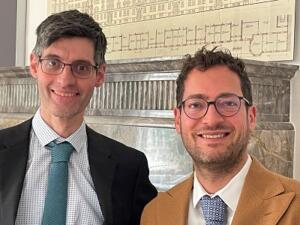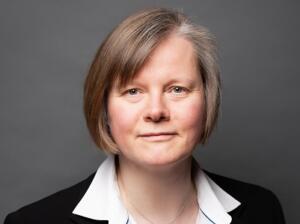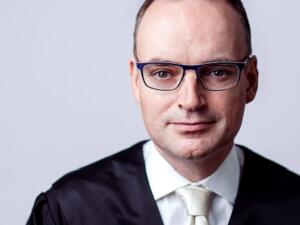Battle over battery technology ends as MU Ionics and CATL sign licensing deal
MU Ionics and CATL have resolved their patent disputes. They recently signed a licence deal that also impacts Opel, which uses the Chinese battery manufacturer's products in its electric vehicles and faced infringement claims in Germany.
22 May 2025 by Konstanze Richter
MU Ionics, a joint venture between Mitsubishi Chemical and Ube Industries, produces electrolytes for lithium-ion batteries. Its EP 1 939 971 covers a lithium secondary cell and nonaqueous electrolytic solution for use therein. The patent holder accused Contemporary Amperex Technology (CATL) of infringing this technology with their lithium batteries and sued both the Chinese battery producer and Opel in Germany.
In January 2023, the Düsseldorf Regional Court ruled that CATL and Opel do not infringe EP 971 in Germany (case ID: 4c O 53/21). MU Ionic appealed the decision.
Validity challenged
Alongside the infringement action, Opel and CATL filed nullity suits at the Federal Patent Court. The court indicated in its preliminary opinion that the patent might be nullified. As a result, the Higher Regional Court suspended the second instance infringement proceedings. The parties settled shortly before the Federal Patent Court was due to make a final decision in the nullity proceedings.
MU Ionics recently announced that they signed a patent licensing agreement with CATL that covers the MP1 Technology. The company stated that both parties “pledge to advance its adoption and fuel the expansion of electronic and electric vehicle markets together”.
The lithium-ion battery market is expanding rapidly, largely due to increasing growth in electric cars. Various market analyses predict a global compound annual growth rate of between 15% and 18% by 2030.
Cards reshuffled
In the first instance, Bardehle Pagenberg represented MU Ionic. Munich-based partner Tobias Wuttke took the litigation with him when he joined from Meissner Bolte at the beginning of 2023.
Meissner Bolte‘s patent attorneys handled the nullity proceedings for the client. The team, comprising patent attorneys Christoph Behrens, Tobias Popp and lawyer Nobuchika Mamine, also provided technical assistance in the infringement proceedings.
- Christoph Behrens und Tobias Popp
- Soenke Fock
- Ingo Strehlke
- Natalia Berryman
For the appeal in the infringement proceedings, Düsseldorf IP boutique Wildanger Kehrwald Graf v. Schwerin took over MU Ionic’s representation. Partner Sönke Fock led the case, supported by patent attorneys Ingo Strehlke and Alexandra Bettermann from von Rohr. The Wildanger team also included Eva Maria Thörner and Wolf Graf von Schwerin. Patent attorney Natalia Berryman of Vossius & Partner also assisted. The mixed firm regularly advises the client in prosecution and filing at the EPO.
CATL’s legal team also saw changes. The patent attorneys from Cohausz & Florack, who had previously advised on technical issues and conducted the nullity action, withdrew from the case during the appeal proceedings. The team included Nathalie Kirchhofer, Arwed Burrichter and Tobias Hoheisel, the latter leading the case at the Federal Patent Court.
- Ina vom Feld
- Max von Rospatt
- Christopher Weber
- Jens Hammer
Patent attorney Jens Hammer from Grünecker took over. The firm’s patent attorneys also represent the Chinese client at the EPO. Hammer was assisted by Yilin Jin and Denis Jurkin. The patent attorney team worked closely with lawyers Ina vom Feld and Max von Rospatt of Herbert Smith Freehills and Rospatt, who conducted the infringement suit.
Opel, on the other hand, relied on a team led by Kather Augenstein from the outset. Düsseldorf-based litigator and partner Christopher Weber took the lead, assisted by Robert Knaps. Patent attorney Hans-Peter Jönsson of Cologne-based Dompatent von Kreisler Selting Werner provided technical support.







